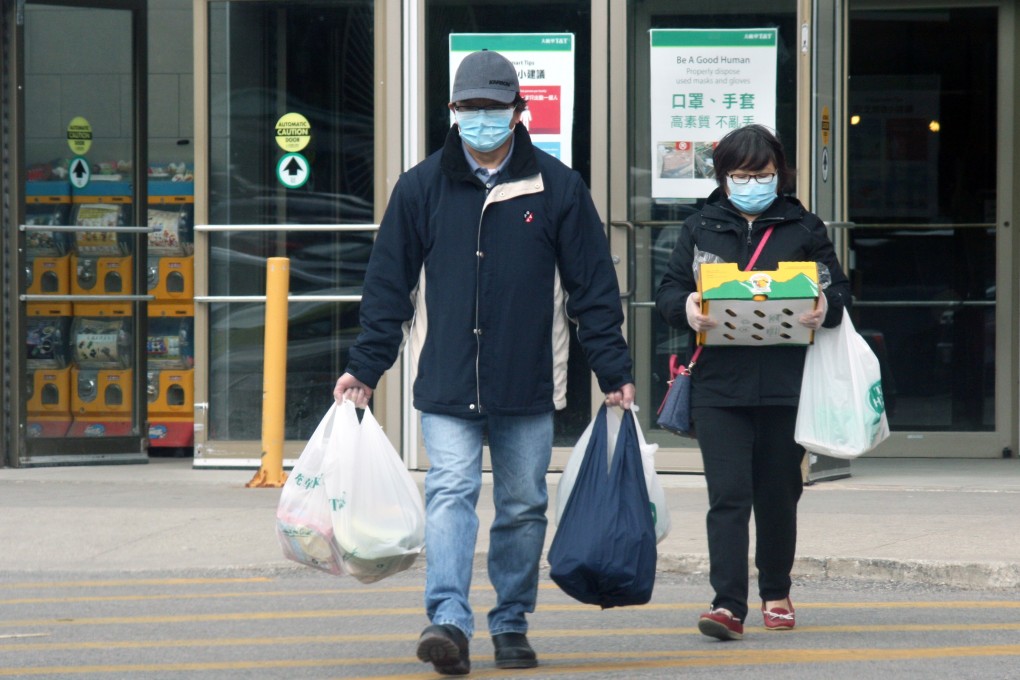The pandemic has changed shoppers’ behaviour and heightened cleanliness anxiety, Canadian study finds
- Focus groups reveal scrupulous cleaning rituals when bringing goods into the home, with some new habits raising the alarm for researchers
- Scientists have questioned whether the risk of virus transmission via packaging and surfaces may be exaggerated

People washed their hands more, despite the shortage of sanitiser, and they rubbed produce with various “disinfectants” – such as vinegar and baking soda – they thought would get rid of possible viral strains but in fact were not at all effective.
The excessive precaution could exacerbate any mental stress brought on by the pandemic, according to the research team led by Ian Young, assistant professor at the School of Occupational and Public Health at Ryerson University, Toronto.
“When I’m at the grocery store, I feel like everything around me is contaminated and I try to touch as little as I possibly can. I walk around like my hands are covered in mud until I get out of the store and can clean my hands properly,” said a woman who took part in the study and was quoted in the paper. The manuscript posted on medRxiv.org on Monday has not been peer-reviewed.
A number of studies carried out by scientists around the world have suggested the new coronavirus could stay for days on the surface of many materials, such as plastic and cloth, and still remain infectious. The lower the temperature, the longer the strains survived.